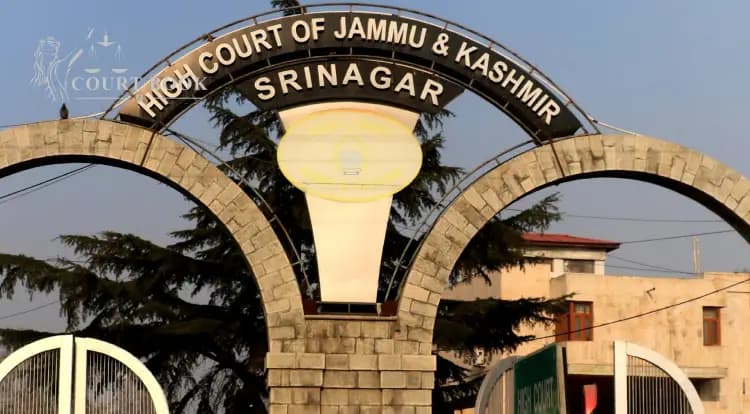The Jammu and Kashmir High Court has ruled that a trial court does not have the power to recall or review its own final orders. The court emphasized that once a final order is passed, the only legal recourse available to the aggrieved party is to challenge the order before a higher judicial authority, such as the High Court.
The ruling was delivered by Justice Sanjay Dhar in the case of Feroz Ahmad Zargar & Others vs. Union Territory of J&K and Others, where the trial court had initially allowed the transfer of custody of the petitioners from Uttar Pradesh to a jail in Jammu and Kashmir but later revoked this decision.
Legal Basis: Section 362 of CrPC
The court relied on Section 362 of the Code of Criminal Procedure (CrPC), which expressly prohibits any criminal court from altering or reviewing its final judgments or orders, except to correct clerical or mathematical errors.
Read Also:- EWS Certificate Cannot Be Rejected Based On Mutation Records: J&K High Court
"A criminal court does not have the power to review its own orders once they are finalized," the court stated, referring to the Supreme Court's judgment in Adalat Prasad vs. Rooplal Jindal & Others (2004) 7 SCC 338.
This decision overturned a previously accepted legal position that allowed lower courts to review their final decisions. The High Court reaffirmed that any modification of a final order must be sought through appellate or revisional jurisdiction in a higher court.
Background of the Case
The case involved multiple petitioners who were facing trial under serious charges, including: Indian Penal Code (IPC), Arms Act, Unlawful Activities (Prevention) Act (UAPA)
During the trial, the petitioners were detained under the Public Safety Act (PSA) and transferred to jails in Uttar Pradesh. Subsequently, the petitioners sought their transfer back to a judicial custody facility in Jammu & Kashmir.
Sequence of Events
The trial court allowed their transfer to Mattan Jail, Anantnag, through orders dated August 11, 2023, August 31, 2023, and September 17, 2023.
The prosecution challenged these orders, and the trial court later recalled them, citing reliance on a High Court judgment that had been stayed by a division bench.
The petitioners approached the Jammu and Kashmir High Court, arguing that the trial court had no authority to revoke its own final orders.
Key Observations of the High Court
The High Court ruled that once the trial court had issued its final orders regarding custody transfer, it could not legally revoke or recall them. The only lawful recourse for the prosecution was to challenge the order before a higher judicial authority.
"The trial court’s act of recalling its own orders was directly in conflict with settled legal principles and the Supreme Court’s ruling," the High Court stated.
The trial court had based its recall order on a ruling from a single-judge bench in Nayeem Rasool vs. UT of J&K & Ors., which was later stayed by the division bench. The High Court clarified that a stayed ruling cannot be relied upon as a precedent to alter or reverse a previously passed final order.
"Even if the judgment was stayed, the trial court did not have the power to review its own order," the High Court emphasized.
The High Court also addressed the broader issue of undertrial prisoners’ rights concerning custody location. It noted that while undertrial prisoners do not have a vested right to choose their place of detention, any shift in custody must comply with legal provisions.
The prosecution had argued that the government has administrative authority to determine the place of detention. However, the High Court held that once detention orders were quashed, judicial custody arrangements must be governed by Section 309 of CrPC, which mandates trial courts to retain control over undertrial prisoners’ custody.
After reviewing all aspects of the case, the High Court set aside the trial court’s recall order and reinstated the original transfer orders that permitted the petitioners to be moved to Mattan Jail, Anantnag.
"The trial court erred in recalling its final orders. The respondents may seek legal remedies through proper appellate channels," the High Court concluded.
Wajid Haseeb, Advocate for petitioner
Syed Musaib, Dy. AG. for Respondents
Case-title: FEROZ AHMAD ZARGAR & OTHERS vs UT OF J&K AND OTHERS, 2025, Livelaw, (JKL)














